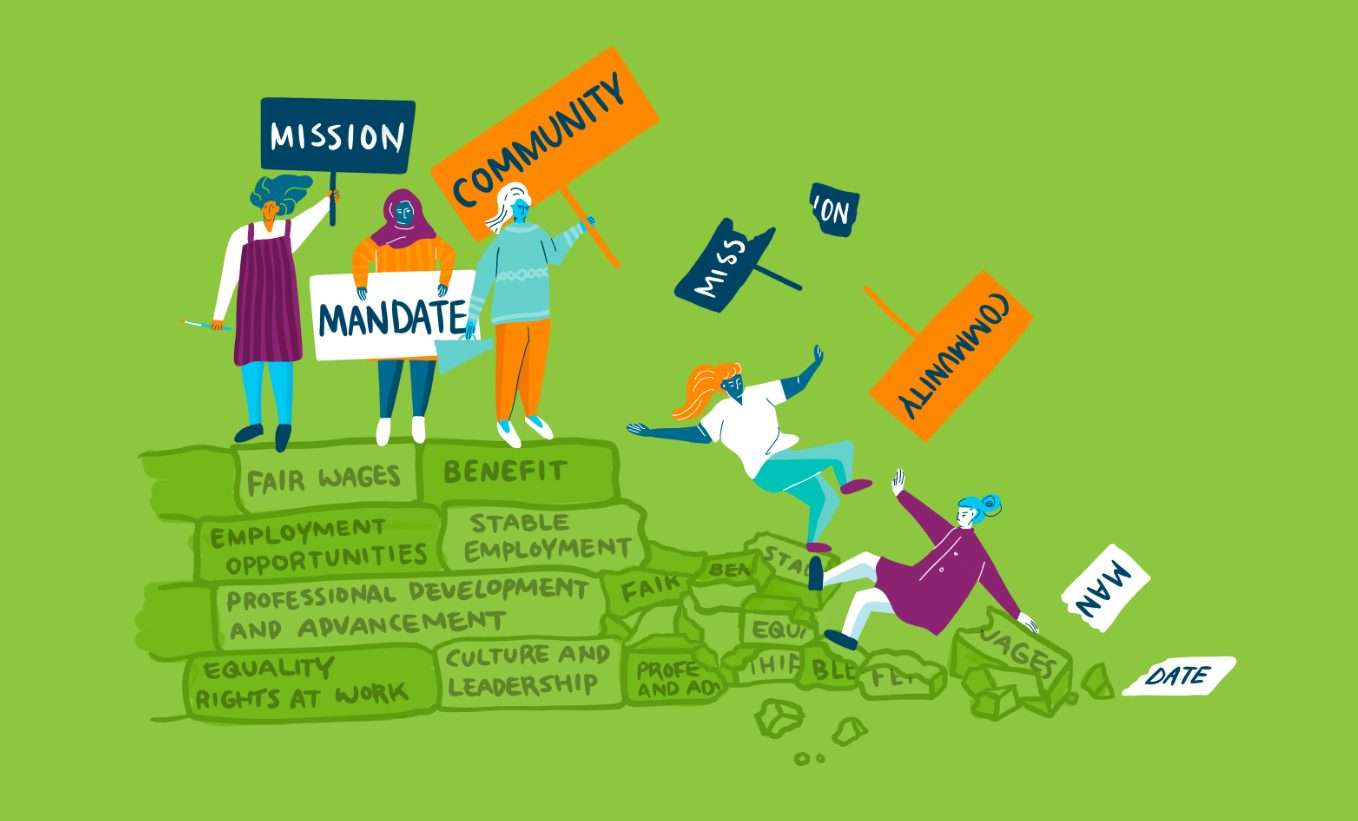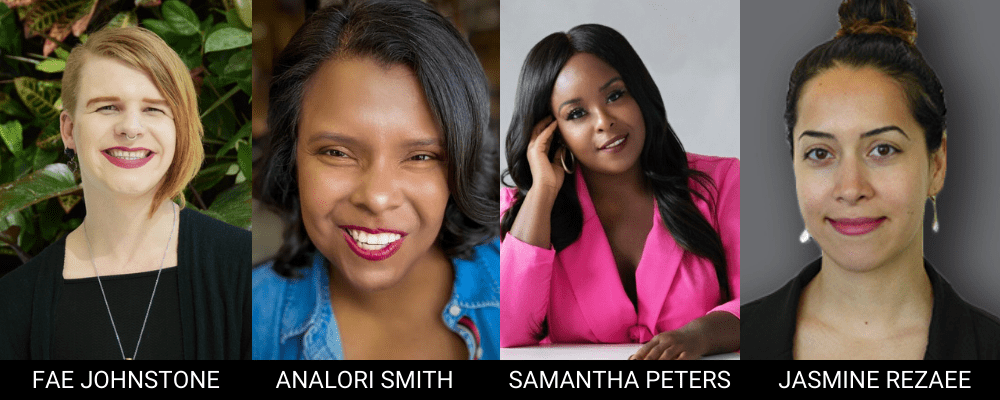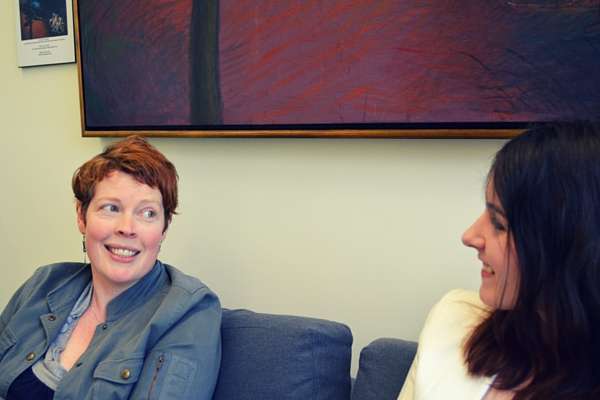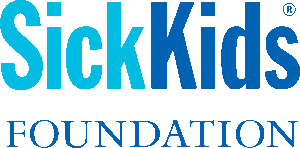
Blog
Reflections on the state of Decent Work for Women in the nonprofit sector
Happy International Women’s Day and Women’s History Month!
Let’s take a moment to celebrate women and gender diverse folks across the nonprofit sector whose transformative efforts are helping to create a more just and equitable future for all Ontarians.
We know that 77 per cent of the nonprofit workforce across Ontario and Canada consists of women workers. It’s with this staggering statistic (80 per cent in 2017) that ONN embarked on the Decent Work for Women journey five years ago. The learnings from the project identified major challenges that women face within the sector, from the gender wage gap, a racialized glass ceiling to workplace harassment, and discrimination. This journey also documented the connection between the high percentage of women working in the sector, particularly Black and immigrant women, who hold jobs concentrated in frontline or entry-level positions, and how the sector is devalued and low-waged.
Some of our reflections include:
- While there is a strong commitment to Decent Work for Women and gender-diverse people, we’ve come along symbolically but not systemically. We’re proud to be a women-majority sector and inclusive of gender-diverse folks but need to implement decent work practices faster in order to advance gender equity.
- Collective advocacy and deepening of relationships within the sector to champion Decent Work is critical for systemic change. We collectively need to eradicate the root causes of the nonprofit HR crisis.
- Intersectionality needs to be intentional and ongoing, it doesn’t end with one relationship or project. Indigenous women, Black women, racialized women, women of trans experience, women with disabilities, gender diverse people, and immigrant women still remain the least supported within our sector.
- Our sector’s women-majority workers rely on care work to do care work. Long-term investments in care infrastructure can boost care service availability, better quality of care, and provide decent work jobs.
- Decent Work for Women must include creative solutions to address the feminization of labour, burnout and mental health in the workplace, as many women and gender diverse people within the sector report significant impacts.
- Intimate partner violence for women increased significantly during the pandemic, especially lockdowns. Women in the nonprofit sector may be experiencing violence at home, while having to navigate working from home and continuing to do their work to support their community.
The theme of International Women’s Day this year is Break The Bias. Awareness of the biases that disproportionately impact women and gender diverse folks must be followed by action within the sector. Advocacy efforts are one tool to create systemic change, and as a network of many advocates on the frontline and within the realm of policy for Decent Work for Women, we believe that change and breaking the bias IS possible.
The nonprofit sector must hold itself accountable for taking action on advancing gender equity in meaningful ways that matter to the women and gender-diverse folks working in our sector.
A few ways to take action:
- Pay transparency, this means including pay scales in job postings
- Equal pay for equal work
- Offering paid sick days, comprehensive benefits, pension contributions and maternity and parental leave top-ups
- Providing mentorship and professional development opportunities
- Remove expectations of emotional labour
Explore our Decent Work for Women site for more ways to take action.
IWD reflections from leaders in the nonprofit sector
We shared our reflections above but also wanted to highlight reflections from women and gender-diverse leaders within the sector. We asked them to tell us what they thought had changed? Where do they see hope? What actions can the sector take to advance gender equity?
Fae Johnstone – Executive Director, Wisdom To Action
“From where I stand, one of the most pressing issues in the nonprofit sector is pay equity and gainful employment for trans, gender diverse and 2SLGBTQ+ people. While the sector has come a long way, I rarely see trans women like me in executive positions. I dream of a nonprofit sector where trans and 2SLGBTQ+ people in leadership roles aren’t an anomaly or an outlier. We need to do more than train our staff on inclusion; we need to ensure trans and gender diverse people are present in our workplaces, supported by our teams, and valued for the immense wisdom and talent they bring to the table.”
AnaLori Smith – Board Chair, Centretown Citizens Ottawa Corporation
This International Women’s Day, I would like the nonprofit sector to create the conditions to reflect the communities they serve. We need to move away from tokenism within board structures, and people are not checkboxes. We must mentor those with lived experience and prioritize those individuals with lived experience. If we are going to retain diverse women, the culture must reflect those changes. As a woman living with a physical disability, I’m consistently reshaping how we “do” board work to be more accessible—moving 200-page board packages to 45- pages; moving away from 3-hour meetings to 90-minute meetings, ensuring that we have shared language around anti-oppression and diversity.There needs to be innovative responses organizations don’t get stuck in their ways that are exclusionary.”
Samantha Peters – Director, Black Femme Legal
“From where I stand, it is imperative that the non-profit sector address anti-Black racism generally, and misogynoir, including trans misogynoir specifically. This is because systemic, institutional, and individual [trans] misogynoir has led to pay inequities, safety issues, gender based disparities in leadership, as well as sexual and gender-based violence in the workplace. Indeed it’s dangerous when non-profit organizations become experts on the language, but not in practice. Black queer women, femmes, trans and gender expansive folks in the 2SLGBTQI+ community deserve a safe and supportive work environment. They deserve workplace policies that protect them from harm. They deserve to be paid for their work and so much more.”
Jasmine Ramze Rezaee – Director of Advocacy and Communications, YWCA Toronto
I am hopeful there is a greater desire to move away from practices rooted in colonialism and capitalism. We should expand the definition of leadership and reimagine what governance looks like at an organizational level. Nonprofits should also adequately compensate all of our staff members, being mindful not to replicate exploitative notions around skilled versus unskilled labour. Perhaps most importantly, we should hold elected officials accountable by creating dedicated advocacy positions! We need to close the gap between service delivery and political action. Lastly, I do think our staff’s well-being must be our number one priority as a sector. We have to ensure all staff – especially Indigenous, Black, racialized, disabled and trans staff – have access to culturally-affirming and affordable health supports. There is progress on all of these fronts but still so much work left to do.
Reflections written by ONN team members, Pamela Uppal and Yamikani Msosa





